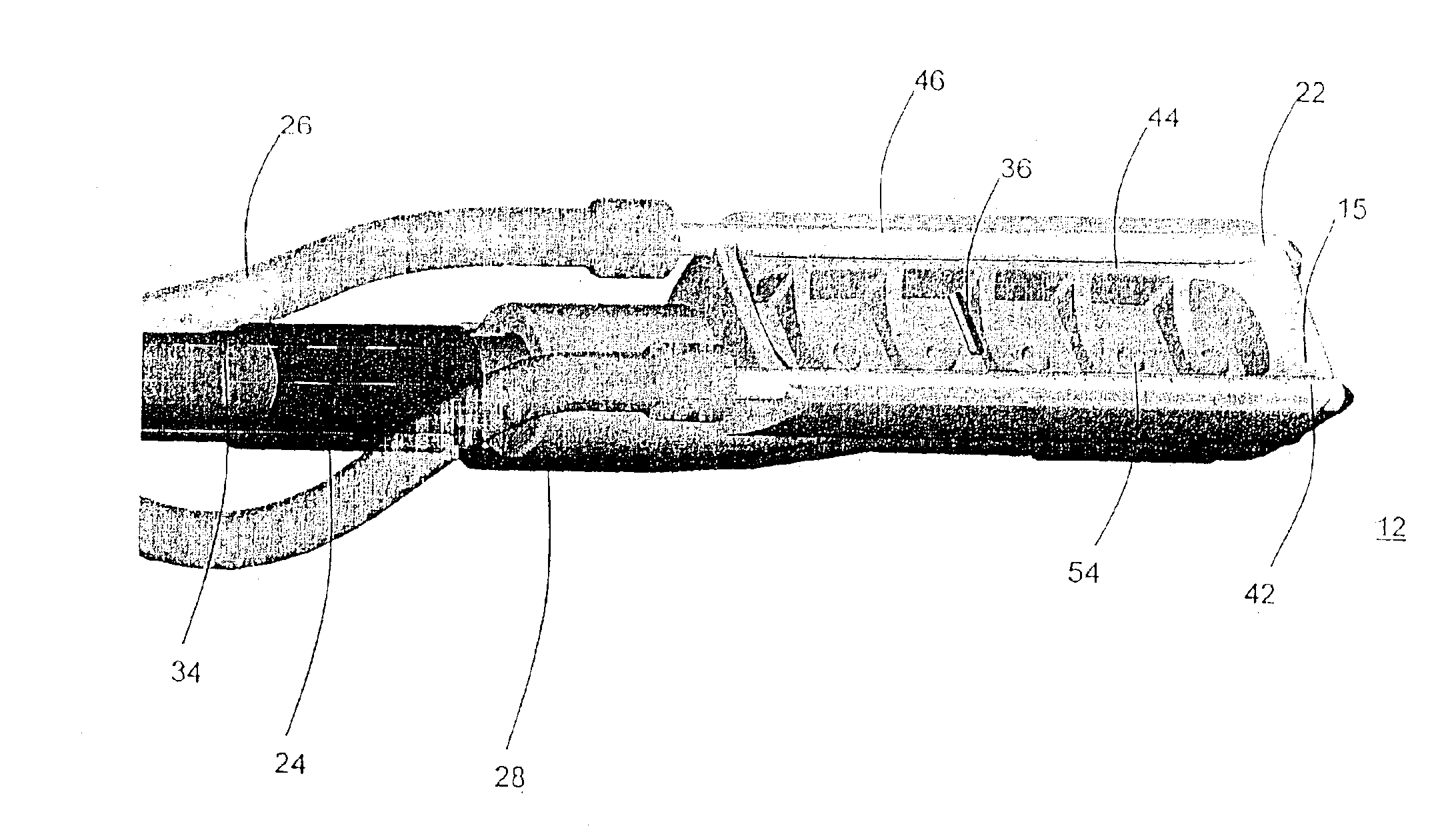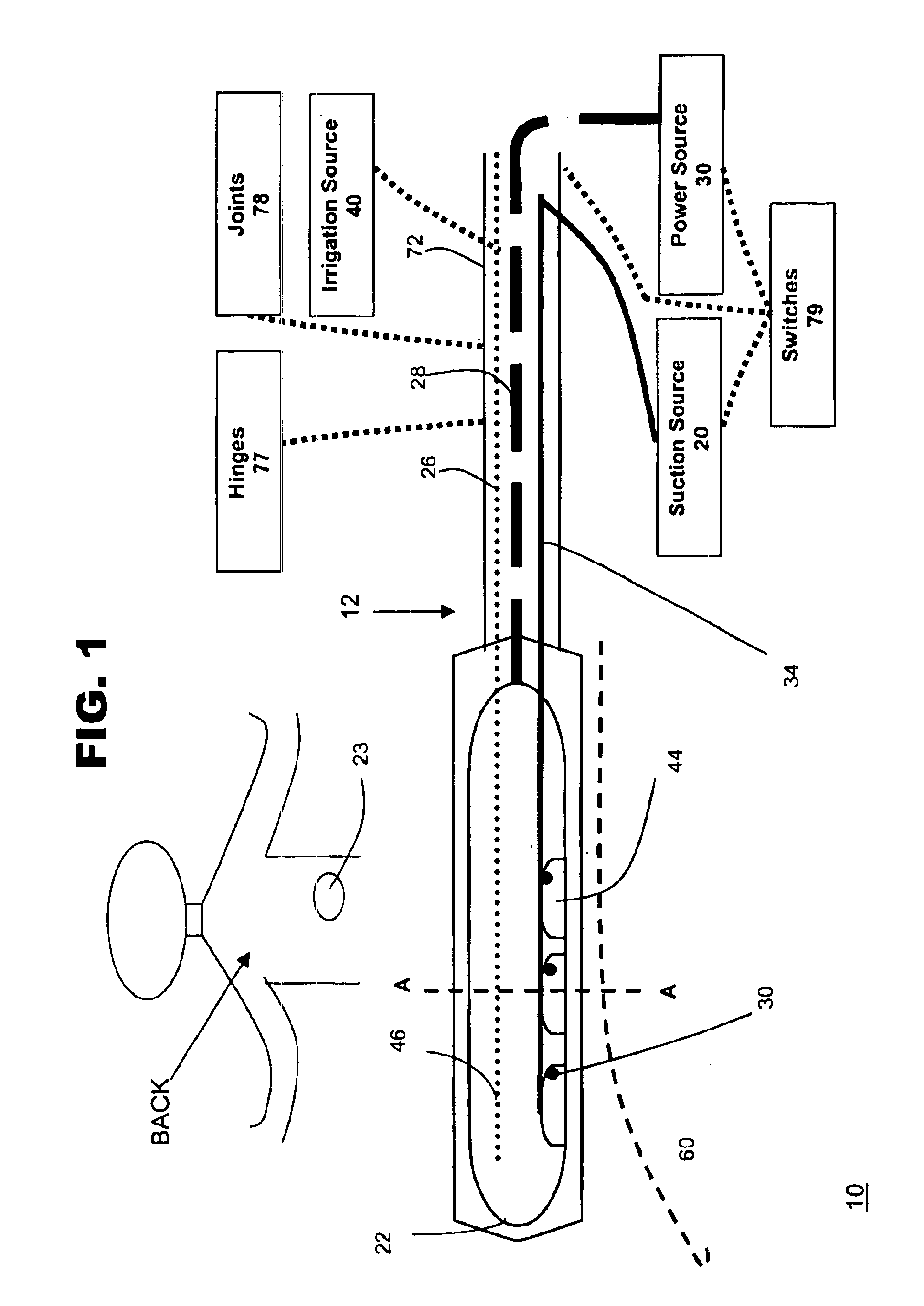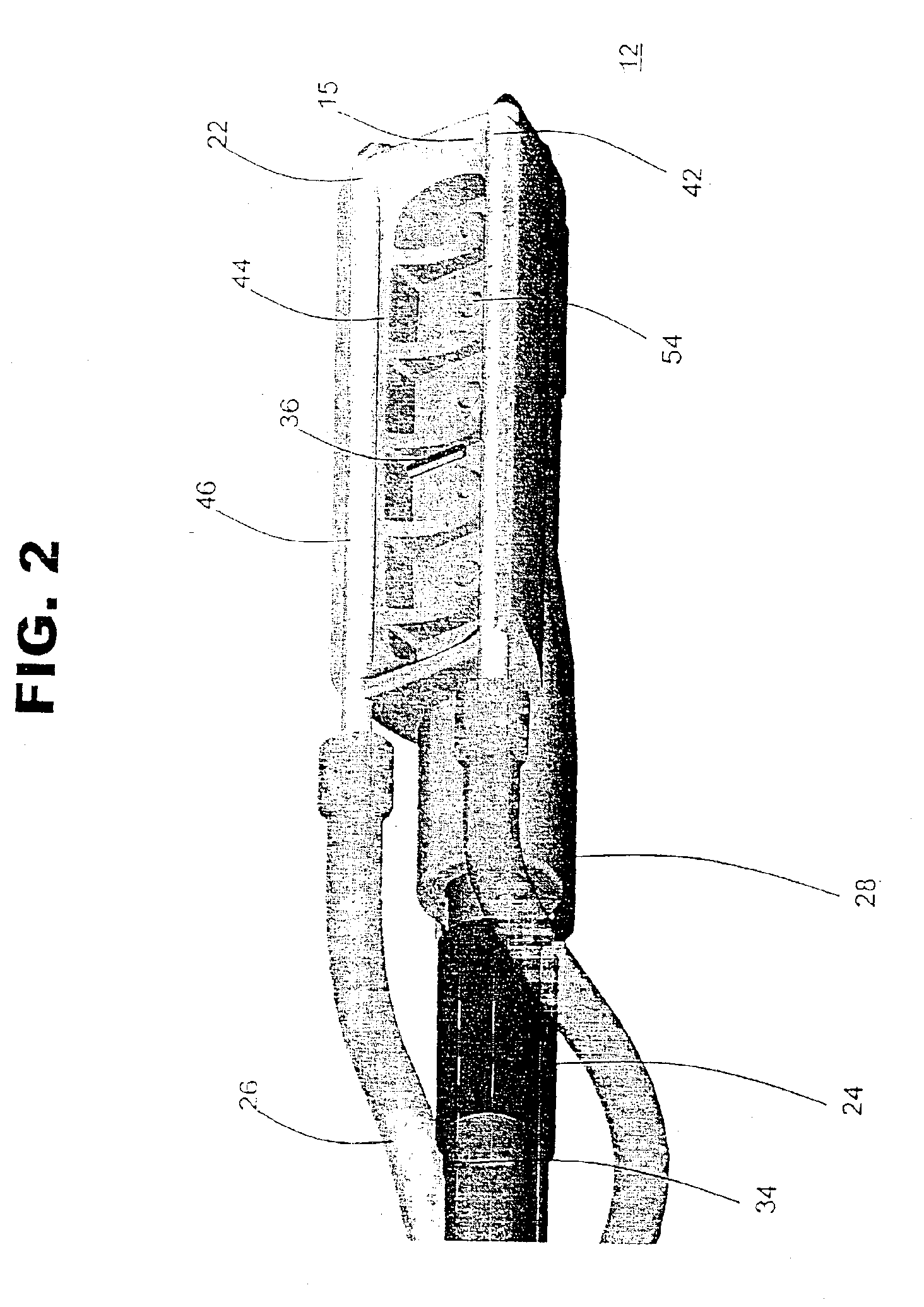Suction stabilized epicardial ablation devices
a technology of epicardial ablation and suction, which is applied in the field of suction stabilized epicardial ablation devices, can solve the problems of non-conductive lesion, difficult for physicians, and insufficient function of electrical signals
- Summary
- Abstract
- Description
- Claims
- Application Information
AI Technical Summary
Benefits of technology
Problems solved by technology
Method used
Image
Examples
Embodiment Construction
[0031]FIG. 1 shows one embodiment of system 10 for ablating tissue, such as organic tissue, in accordance with the present invention. Typically the tissue to be ablated will be located within the body cavity, such as the endocardial or epicardial tissue of the heart. Other body organ tissue, such as the liver, lungs or kidney, may also be ablated using the present invention. Tissue types that may be ablated include skin, muscle or even cancerous tissue or abnormal tissue growth.
[0032]System 10 may include an ablation device 12 that comprises at least one conductive element 22, such as an electrode, and a connection 28 to a power source 30. Ablation device 12 may also include one or more suction elements 44 and a suction conduit 34 that provides suction from a suction source 20. System 10 also may include a conduit 26 to an irrigation source 40 that provides irrigation fluid to the ablation site. System 10 may also include temperature-sensitive elements 36, which may have the same po...
PUM
 Login to View More
Login to View More Abstract
Description
Claims
Application Information
 Login to View More
Login to View More - R&D
- Intellectual Property
- Life Sciences
- Materials
- Tech Scout
- Unparalleled Data Quality
- Higher Quality Content
- 60% Fewer Hallucinations
Browse by: Latest US Patents, China's latest patents, Technical Efficacy Thesaurus, Application Domain, Technology Topic, Popular Technical Reports.
© 2025 PatSnap. All rights reserved.Legal|Privacy policy|Modern Slavery Act Transparency Statement|Sitemap|About US| Contact US: help@patsnap.com



